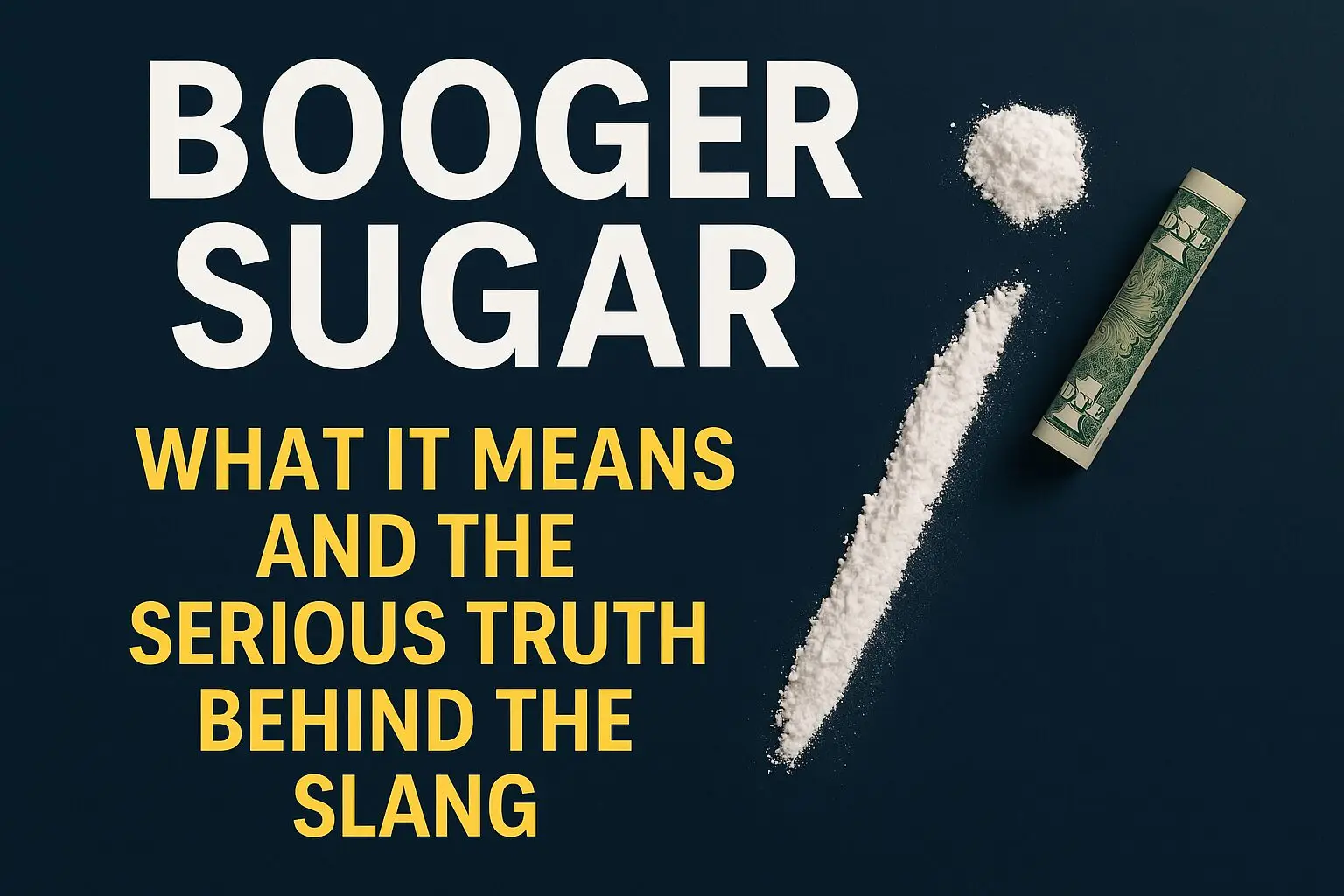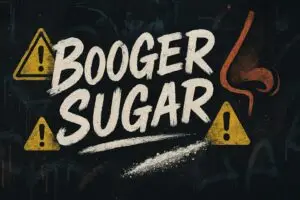The current digital age, together with pop culture, creates conditions that result in popular slang spreading rapidly. People today widely use and discuss the term “Booger Sugar” across social media platforms and meme culture. In society, a seemingly harmless term actually refers to the dangerous, addictive, illegal drug cocaine.
The content examines the definition of “Booger Sugar” and its hidden risks while explaining why understanding the dangerous realities of this term requires going beyond its casual use.
🔍 What Is “Booger Sugar?
The slang name Booger Sugar refers to cocaine, which exists as a white powder derived from coca plant leaves. Its nickname derives from two equal parts.
- The drug is commonly “boogered” through the nose, which gave rise to this term.
- The drug’s resemblance to finely grated sugar gives it the street name “Sugar”.
People mainly use this slang in music, comedy, and online culture to talk about cocaine in a light or informal manner, despite its serious health risks.
🧠 Why This Slang Matters
Slang terms like “Booger Sugar” are often used to:
-
Conceal drug use in conversation or online.
-
Normalize or trivialize the danger of illegal substances.
-
Appeal to younger audiences who may not yet understand the real-world risks.
The use of casual terminology obscures the true severity of a drug addiction, so people, in particular, youth groups, find it challenging to comprehend cocaine addiction’s critical nature.
⚠️ The Real Dangers of Cocaine
People mistake the affectionate nickname of cocaine for a safe substance, even though it remains both addictive and unlawful, with damaging effects on physical and mental functions. Here’s what you need to know:
Short-Term Effects:
-
Burst of energy, alertness, and confidence
-
Increased heart rate and blood pressure
-
Decreased appetite and sleep
-
Risk of risky behaviors, aggression, or paranoia
Long-Term Effects:
-
Damage to the heart, brain, and nasal tissues
-
High risk of addiction and overdose
-
Mental health issues: anxiety, depression, psychosis
-
Increased risk of strokes, heart attacks, and sudden death
Throughout regular cocaine use, people develop higher tolerance, leading to escalating drug use, which results in addiction.
👀 Cocaine in Pop Culture
The slang expression “Booger Sugar” appears in multiple hip-hop songs and on public viral media platforms. Still, its language is specifically designed to make cocaine appear fashionable or funny and rich. The song lyrics either illustrate the effects of addiction and hardship, or they create a fraudulent positive image of cocaine that may affect susceptible audiences.
Education and media literacy serve as the foundation for addressing the situation. Being able to distinguish slang that conceals actual threats marks the beginning stage in guiding people to make wise and beneficial decisions.
🛑 Legal Consequences of Cocaine Use
Cocaine is classified as a Schedule II controlled substance in many countries, including the U.S., which means:
-
It’s USgal to possess, use, sell, or distribute.
-
Punishments include heavy fines and jail time.
-
Even being caught with a small amount can result in a criminal record.
Using or sharing “Booger Sugar” is not just risky health-wise—it could have long-lasting legal consequences.
💬 How to Talk About It (Especially With Teens)
All parents, educators, and mentors should deal with slang terms such as “Booger Sugar” through understanding and compassion. It is more beneficial to handle the term respectfully instead of dismissing or laughing at it:
- Open-ended questions provide the best approach for understanding: “Have you ever heard this term? Do you know what it means?”
- Present information about Booger Sugar in a collected manner while showing no signs of judgment.
- Encourage free and honest dialogue even when punishment seems possible.
Open discussion with education proves more useful in educating people than using fear-based strategies.
🔚 Final Thoughts: Don’t Let Slang Fool You
The expression “Booger Sugar” creates a humorous connotation, although the term represents a serious matter. Cocaine users employ slang to minimize the harsh aspects of their substance; however, these humorous names always represent extreme risks. Understanding the language that surrounds cocaine use stands as the initial step before choosing safer and healthier options, despite its serious physical consequences, emotional dangers, and legal complications.


